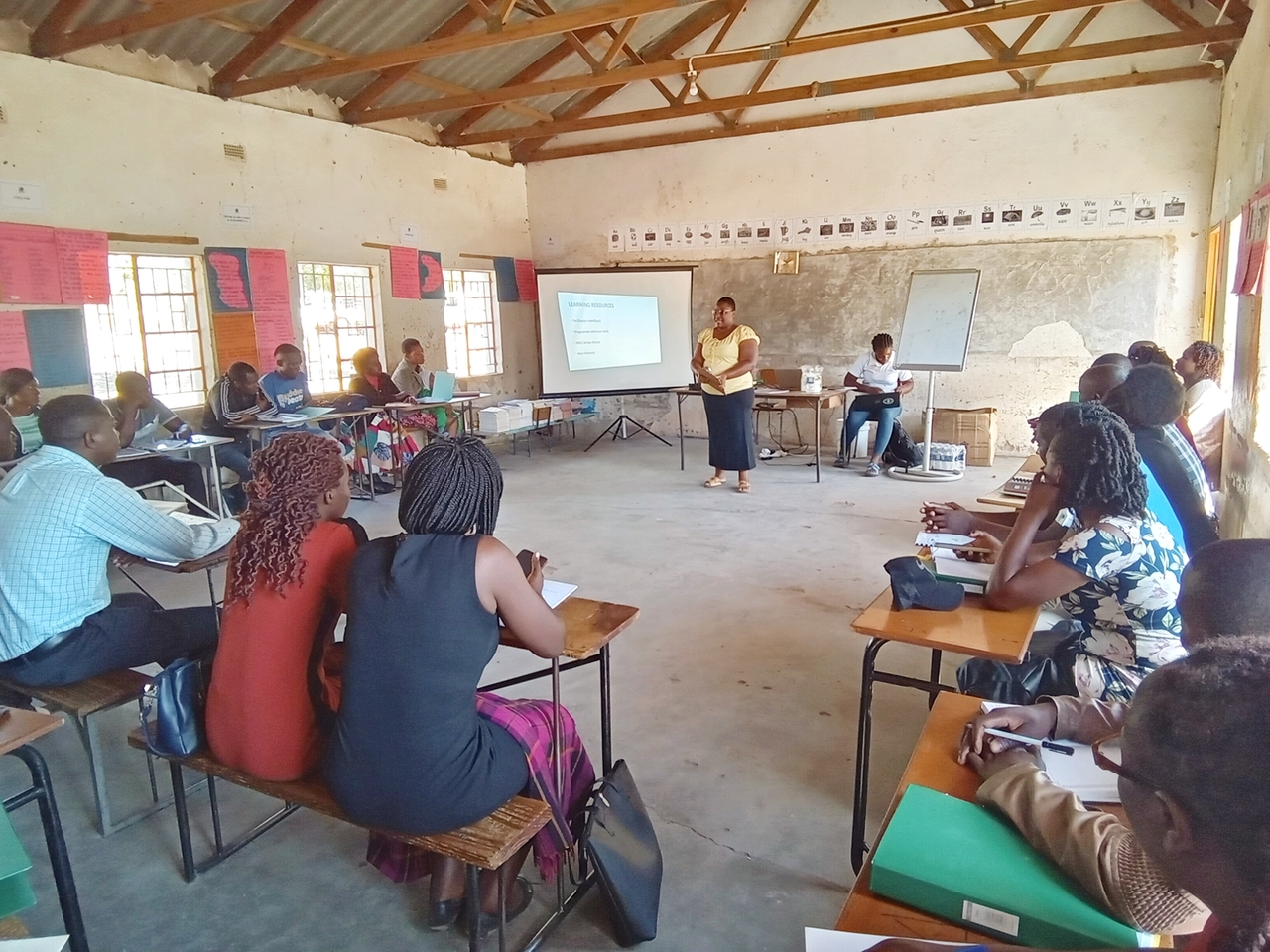Empowering Teachers, Empowering the Next Generation: The Key to Effective Conservation Education
Conservation education is vital for a sustainable future. Schools play a crucial role, but teachers need training and support to effectively teach conservation. Let's empower them to inspire the next generation!

To address the gap of conservation education amongst the youth, organizations are introducing conservation programs in schools, but they often require teachers to implement these programs. It is essential to equip teachers with the necessary skills and knowledge to teach conservation education effectively. This includes training them on how to use conservation materials and incorporate environmental education into their daily curriculum. By doing so, conservation education will become an integral part of our children's lives. Everyone, from the youngest to the oldest, must be part of biodiversity conservation. Let's work together to empower teachers and the next generation to become conservation leaders.





Please sign in or register for FREE
If you are a registered user on WildHub, please sign in
H Nicky, thanks for sharing your thoughts on this important topic! I wonder how other organisations make sure that teachers have the right skills and materials to provide environmental education. Perhaps @Yunita Siwi and @Reyni Tresia Palohoen could provide some thoughts on the Selamatkan Yaki NGO in Sulawesi, Indonesia, do this long-term?
Also, perhaps other members who specialise in environmental education could share their experiences? @Lisa Chitura, @Miguel Sho , @Queen Elizabeth Hare, @Sikela Namangolwa , @Boka Kondua Dieuleveut , @Keren Sophia Pereira , @Silver James , @Anne-Camille SOURIS, @Carolyn J Henri and @Francisca Kasuku . Thank you in advance for sharing your thoughts with us!
Based on our conversation, it may also be useful to dedicate a space to exchanging such materials. Let me know what you all think!
Thanks Vimbainashe Eunick, for sharing your thoughts on this important topic. I feel it is more important in Africa and we must act now.
Environmental conservation education is the key if we must achieve full conservation of endangered species.
As a conservationist, I believe passionately in the education of future generations; having worked as conservation education tutor at the Wildlife Conservation Society, Nigeria. I saw the gap you're emphasising on. Environmental conservation education is not incorporated into the curriculum of schools in Nigeria. In fact some students doesn't know anything about conservation.
That is why I am currently volunteering with the Youth Conservation of Protected Areas Program Aires of Africa & Conservation - PAPACO, of the International Union for Conservation of Nature - IUCN to tutor school children and youths also equip teachers with the skills, knowledge and tools to teach environmental conservation education in schools using the syllabus of the Youth Conservation of the IUCN-PAPACO.
Thanks, Asime. This IUCN initiative sounds very interesting. is it only operating in Nigeria? I feel that it might be such a great initiative for Zim and other Southern African countries as well.
No, Vimbainashe. It is operating in West Africa. You can check out the syllabus at this link https://youth-conservation.org/en/resources/
If you are interested in collaboration, you can reach out to Geoffroy Mauvais, the PAPACO coordinator and Magdelain the Youth Conservation coordinator.
Hi@Vimbainashe Eunick! Thank you for raising such important points about Conservation Education.
I second your views, and after having worked in the Environment and Wildlife Conservation education space for the past 2 years in India, I can’t express how crucial simple action through community awareness is! I have realised that more schools here have started eco-clubs in the post-pandemic period - wonder if that’s the same in Zimbabwe.
We usually ease the teachers that we work with into the core theme for the year by conducting an interactive orientation programme. This way they are better equipped and feel more comfortable with encouraging their students to learn about the environment and biodiversity. It would be nice to learn more about how you and your colleagues operate in the conservation awareness space! Happy to chat further :)
Cheers, Keren x
Hi Keren, thank you for your insight. Yes in Zim, we also have school eco-clubs being established. I would love to get in touch and discuss more on environmental education. Please email me at mainokunina@gmail.com and we schedule a chat.
Hi Vimbainashe,
Indeed your observations on the need for conservation education cannot be over-emphasized. I work in a very similar setup at the Wildlife and Environmental Conservation Society of Zambia and my organisation has managed a Conservation Education program for over three decades now. What has helped us implement this program and reach out to countless children and youths over the years is our Strategic Partnership with the Zambian Ministry of Education. With the endorsement of the Ministry, we have been able to leverage the available structures by way of working with the teachers (whom we have been training) to serve as conservation clubs Patrons and Matrons.
In addition, my organisation has put together a curriculum that speaks to the conservation education needs of Zambia and gone a step further to provide education materials in the form of club magazines. The club lessons are delivered by the Patrons and Matrons through the weekly extra-curricula club days that each school is required to have in place. My role comes in to ensure that the teachers are supported with all they need to implement this program. In my view, this programme and approach has stood the test of time and would be very happy to recommend a similar approach to others wishing to start a similar initiative.
I am very happy to connect for further interactions with everyone wishing to explore this topic in further detail. See more about my organization's conservation education program here